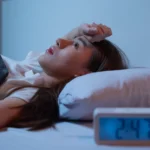Professional Help and Treatment Options
For many individuals, professional help is a crucial component of anxiety management. The treatment for anxiety disorders may include:
- Psychotherapy
- Medications
- Lifestyle changes
- Coping strategies Consulting a mental health professional early can prevent anxiety from worsening and provide essential guidance.
Available professional treatment options include the following.
Psychotherapy
Cognitive-behavioral therapy (CBT) is recognized as the most effective form of psychotherapy for treating anxiety. Exposure therapy, a component of CBT, involves gradual exposure to anxiety-inducing situations to build confidence and reduce fear.
Psychotherapy is highly recommended for those who want to manage anxiety disorders.
Medication Management
Antidepressants and anti-anxiety medications are common prescriptions used to alleviate symptoms of anxiety disorders. These medications can target various anxiety symptoms and significantly improve the quality of life.
A healthcare provider can determine the appropriate medication and dosage.
Intensive Outpatient Programs (IOP)
Intensive Outpatient Programs offer structured treatment for individuals with severe anxiety, providing support while allowing them to live at home. This option can be particularly beneficial for those needing more intensive care without the need for hospitalization.
How Atlantic Behavioral Health Can Help
At Atlantic Behavioral Health, we are dedicated to providing comprehensive anxiety treatment in MA tailored to meet your unique needs. Our experienced team works closely with you to develop a personalized treatment plan that combines evidence-based therapies, medication management, and ongoing support. We understand the challenges anxiety can bring and are committed to helping you regain control over your life. With our compassionate care and proven strategies, we guide you every step of the way toward lasting relief and improved well-being.
Lifestyle Adjustments to Prevent Anxiety
Adopting lifestyle changes can significantly improve anxiety management and overall mental health. Sustainable management of anxiety often requires consistent lifestyle changes rather than quick fixes. Incorporating regular routines into daily life can help stabilize mood and reduce anxiety.
Here are some lifestyle adjustments that can help prevent anxiety.
Time Management
Effective time management can help individuals prioritize tasks and reduce feelings of being overwhelmed. By organizing and planning your day, you can reduce the stress that contributes to anxiety and the time spent feeling overwhelmed.
Limiting Caffeine and Alcohol
Caffeine acts as a stimulant that may heighten stress levels, contributing to increased anxiety. Reducing the intake of stimulants like caffeine and alcohol can help lower anxiety symptoms and improve your mood.
Building a Support System
Establishing a reliable support network can provide essential emotional support, which is crucial for managing anxiety effectively. Developing strong social connections can enhance emotional well-being and reduce feelings of isolation.
A strong support group system offers reassurance and helps you cope better with anxiety, especially when you are afraid.
Next Steps for Anxiety Management
Implementing these next steps can enhance your ability to manage anxiety effectively and improve overall well-being. Setting realistic goals, monitoring your progress, and seeking continuous support are key components of a successful anxiety management plan.
These steps can be broken down further.
Setting Goals
Setting treatment goals significantly enhances the effectiveness of anxiety management. Establishing clear, achievable objectives can provide direction and motivation during your anxiety management journey.
A roadmap of personalized goals helps monitor progress and adapt strategies as needed.
Monitoring Progress
Regularly tracking symptoms and progress allows individuals to make informed adjustments to their anxiety treatment plans. Keeping a journal of symptoms can help track changes over time, aiding in the adjustment of treatment strategies.
Seeking Continuous Support
Continuous support from mental health professionals can significantly aid in managing anxiety effectively. Combining ongoing professional support with peer interaction creates a holistic approach to effectively manage anxiety.
Building a strong support system that includes peers can provide individuals with shared experiences and emotional backing in their journey with anxiety.
Managing anxiety requires a multifaceted approach that includes recognizing symptoms, employing immediate relief techniques, making long-term lifestyle changes, and seeking professional help. By understanding and implementing these strategies, you can take control of your anxiety and improve your quality of life.
Remember, you don’t have to face anxiety alone. Atlantic Behavioral Health offers a range of services, including therapy and medication management, to support individuals struggling with anxiety. Take the first step towards a calmer, more balanced life today.
Frequently Asked Questions
What are common physical symptoms of anxiety?
Common physical symptoms of anxiety include muscle tension, rapid heartbeat, sweating, and trembling. Recognizing these symptoms can help in managing anxiety effectively.
How can breathing exercises help manage anxiety?
Breathing exercises can effectively manage anxiety by grounding you in the present and activating the body’s relaxation response through techniques like diaphragmatic breathing. This process calms the nervous system and fosters a sense of tranquility.
What dietary changes can help manage anxiety?
Incorporating a balanced diet with fruits, vegetables, whole grains, and fish can effectively help manage anxiety. Focusing on nutrients like omega-3 fatty acids will further stabilize mood and enhance emotional well-being.
What is the role of psychotherapy in treating anxiety?
Psychotherapy, particularly cognitive-behavioral therapy (CBT), plays a crucial role in treating anxiety by employing techniques like exposure therapy to gradually confront and reduce fear. This evidence-based approach effectively helps individuals build confidence and manage anxiety symptoms.
How can I verify my insurance coverage for an Intensive Outpatient Program (IOP)?
To verify your insurance coverage for an Intensive Outpatient Program (IOP), contact the admissions team at your chosen facility and provide them with your insurer’s details. They will assist you in confirming your coverage.







